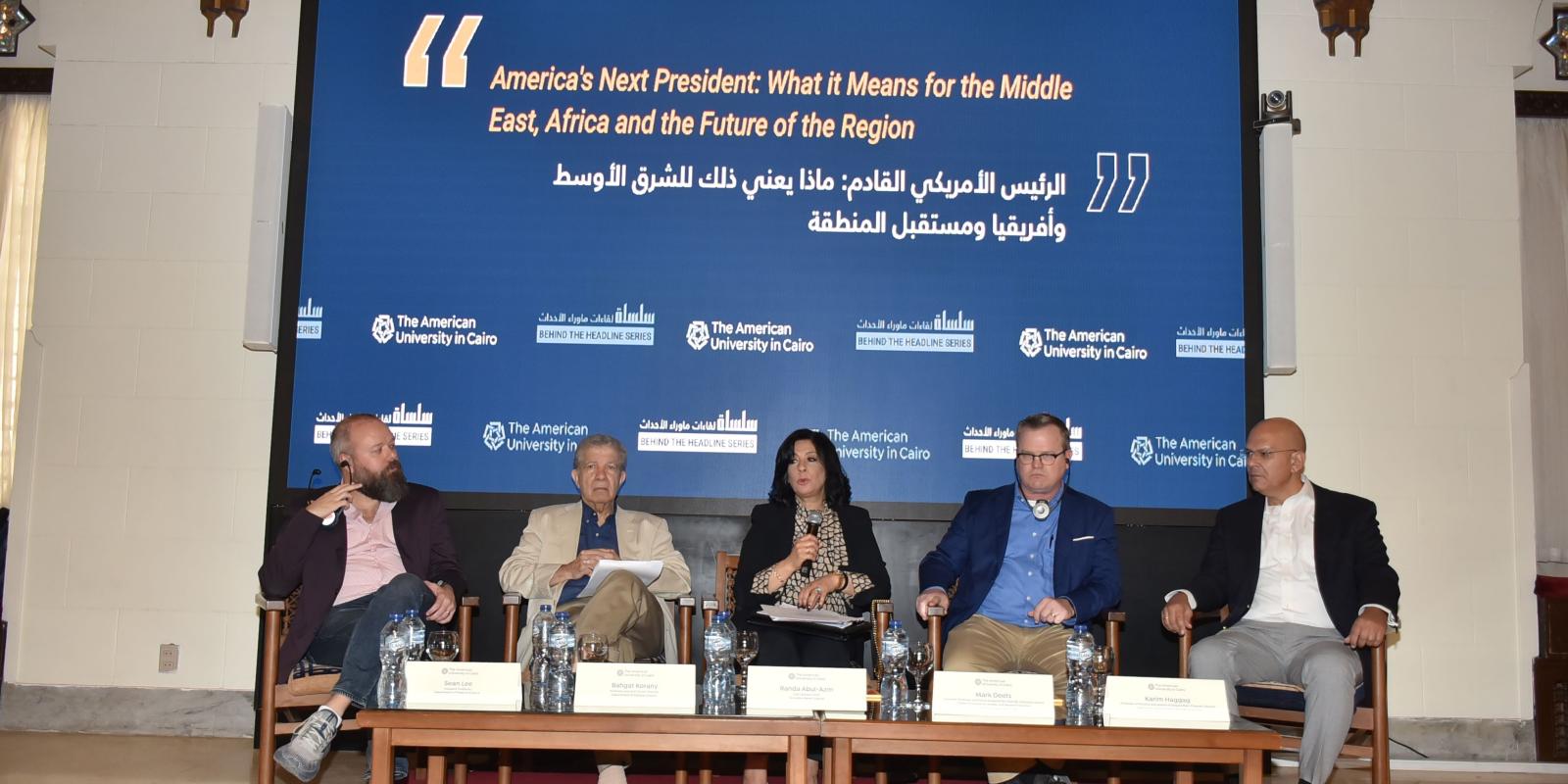
AUC Faculty Explore the Impact of the U.S. Elections on the Middle East and Africa
The American University in Cairo (AUC) hosted the first session of its “Behind the Headlines” media roundtable discussion series, gathering distinguished AUC experts to discuss the global implications of the upcoming U.S. presidential election on the Middle East and Africa. Titled "America’s Next President: What it Means for the Middle East, Africa, and the Future of the Region," the event addressed the potential shifts in U.S. foreign policy, the stability of regional geopolitics, and the influence of these changes on the future of both regions.
Leading scholars on U.S. politics and international affairs, including Bahgat Korany, founder and first director of AUC Forum and professor of international relations and political economy; Mark Deets, assistant professor and director of the Prince Al-Waleed Bin Talal Bin Abdul-Aziz Al-Saud Center for American Studies; Sean Lee, assistant professor of political science and Ambassador Karim Haggag, professor of practice at AUC’s School of Global Affairs and Public Policy shared their perspectives and engaged with the participants on how the presidential election might affect ongoing conflicts, alliances and economic prospects in the Middle East and Africa. The discussion was moderated by Randa Abul-Azm, Cairo Bureau Chief of Al-Arabiya News channel.
Korany believes the coming election is a tight race and whoever will win will do so by a slight margin. “When it comes to Israel, Iran and the Middle East, I do not expect core differences between the two main candidates, though they could differ in their means and how they go about addressing relevant issues,” he said. On the ongoing war in Gaza, Korany noted that he is not optimistic since some statistics indicate the reconstruction of Gaza may take up to 80 years. “However, history says that ‘a crisis is a midwife of change’ so the current Arab crisis could lead to a new awakening in the Middle East,” he added.
On the differences between a Republican and Democratic administration, Deets noted that he does not expect a huge difference concerning U.S. foreign policy towards Africa such as in Sudan and Ethiopia. “The one way the U.S. foreign affairs establishment would become more engaged in the Nile River water issue is if it somehow brings the question about the competition with Russia and China.”
On the question of how the Trump or Harris administration would act on the situation in Lebanon, Lee said: “There is no huge difference between the two. Both would rather be reacting to the developments happening on the ground.” Lee said. “We have seen Hezbollah’s capabilities degraded and Israel seems intent on moving forward in this direction,” “yet,” he added, “even if Hezbollah is destroyed as a military organization or even as a political organization, which I have my doubts about, I sense that a continued occupation of South Lebanon will be met with another kind of resistance from the Lebanese people.”
From a diplomatic perspective, Haggag said it is not right to be too pessimistic or too optimistic about the influence of the outcome of the election on the future of the region. “I expect that Arab countries will be proactive in dealing with the current difficult realities in the region.”